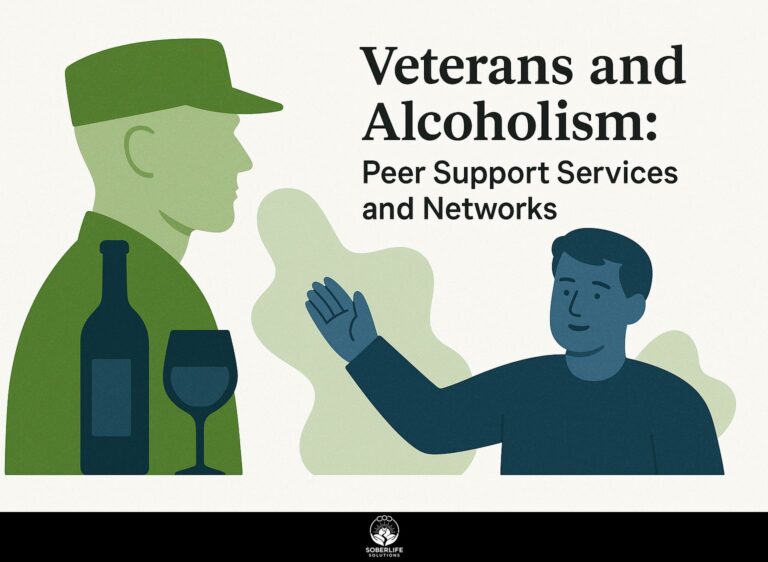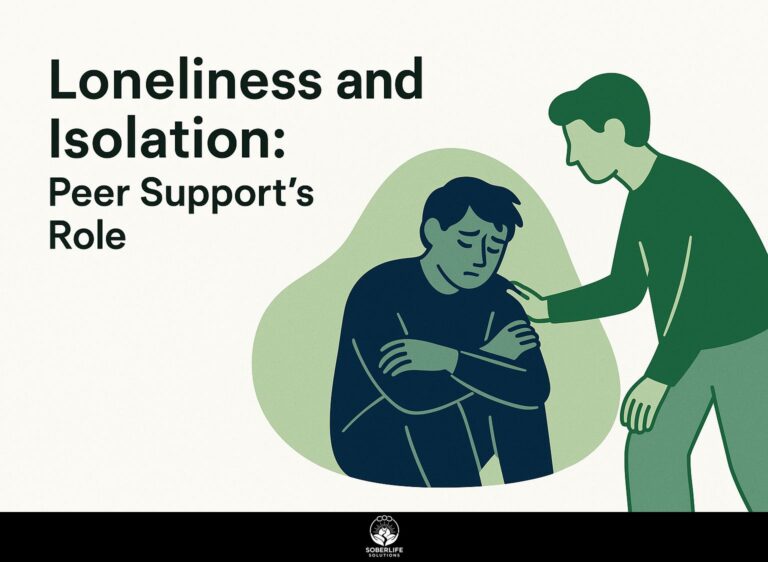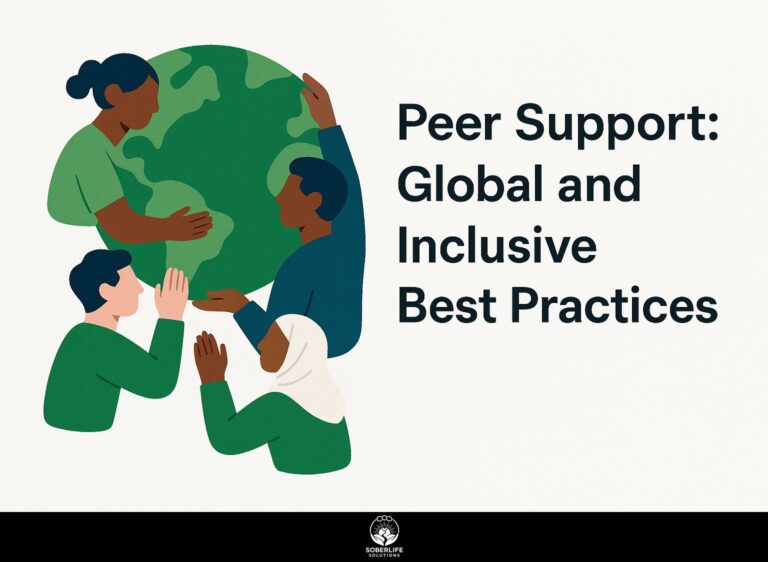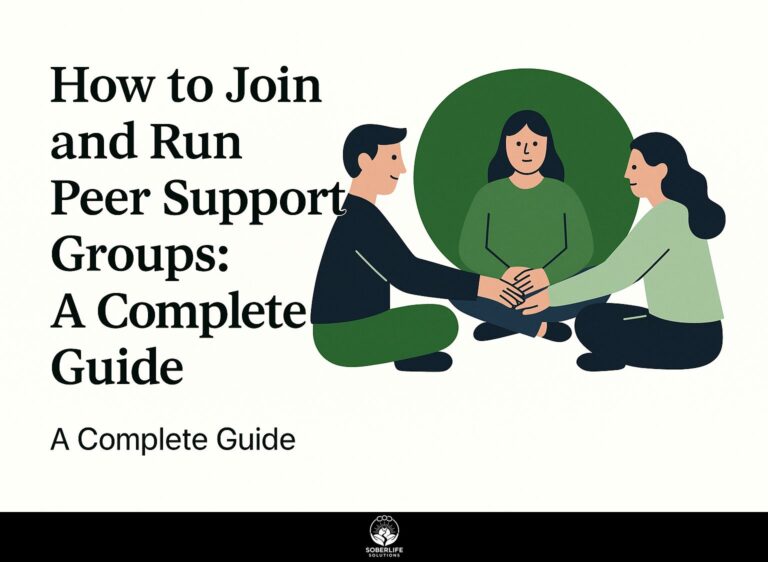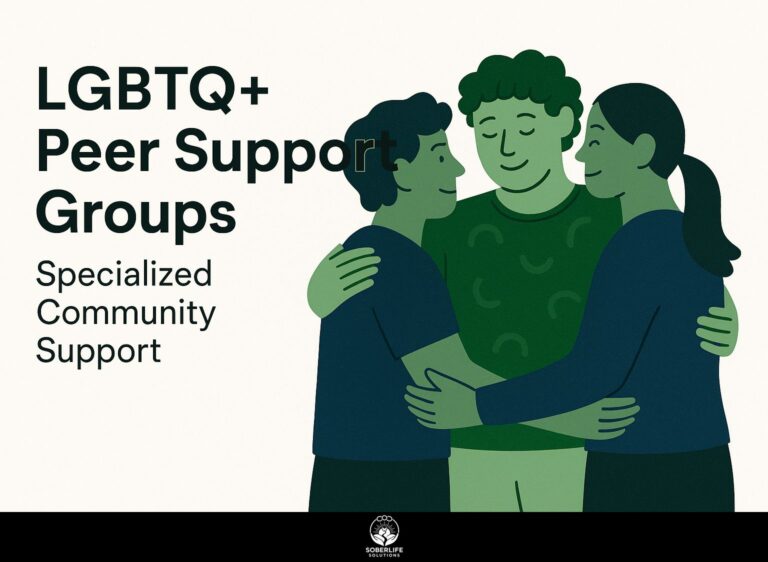Confidentiality in Peer Support: Challenges and Practices
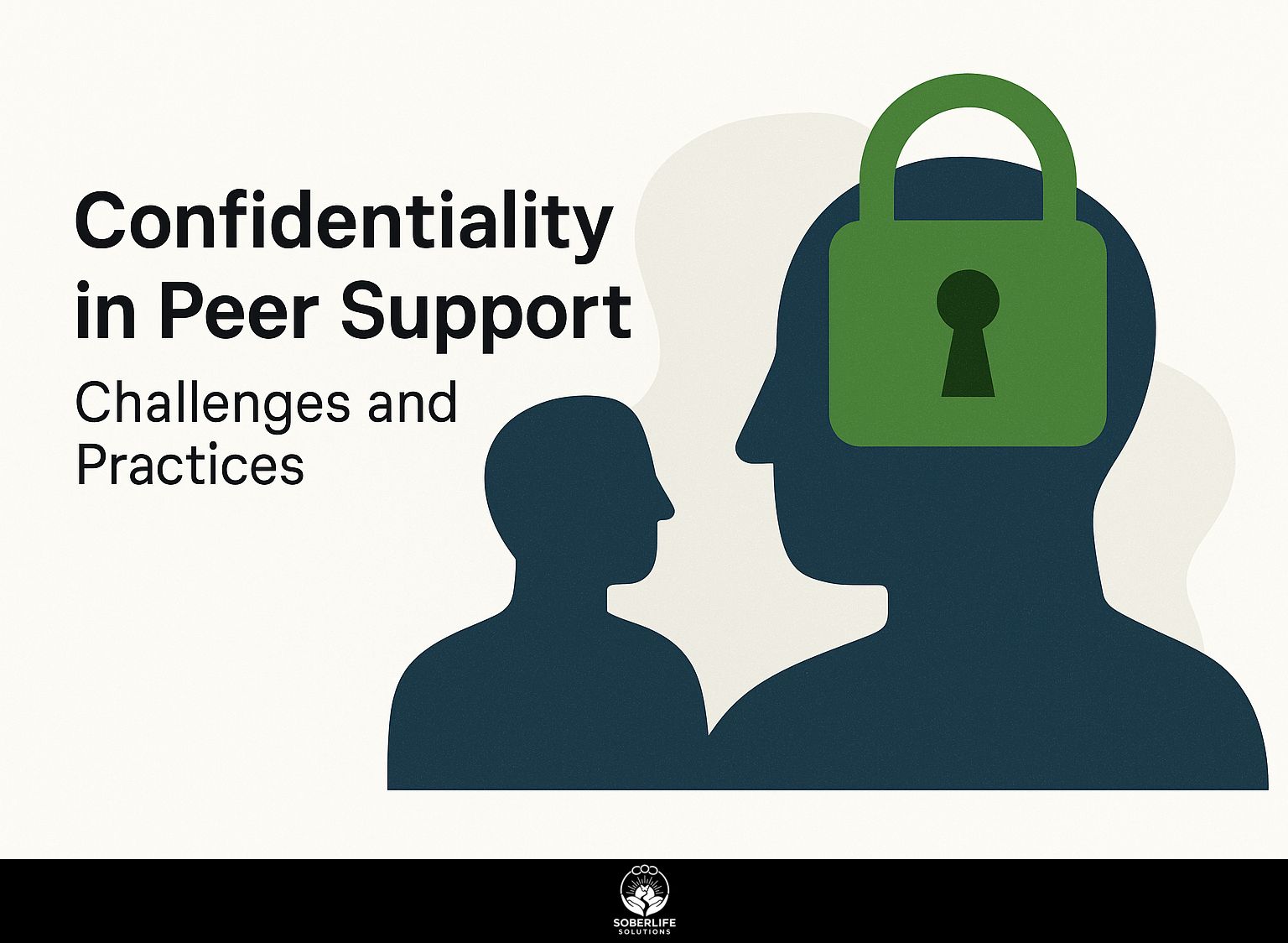
In the era of digital mental health, ensuring confidentiality in peer support poses unique challenges. As more people use and understand technology, peer support specialists must handle privacy challenges online. This article looks at these problems and gives practical ways to keep information private, which helps build trust and safety in peer support settings. Join us to learn effective ways that help both service users and providers keep safe, supportive relationships.
Key Takeaways:
Definition and Purpose
Peer support is defined as a mutual help system among individuals who share similar experiences, particularly in mental health contexts such as major depressive disorder or schizophrenia.
This system encourages empathy and helps people share ways to manage and access helpful resources.
For instance, peer support groups can be facilitated through community centers or online platforms such as 7 Cups and Mental Health America, where members connect about their experiences.
According to the National Alliance on Mental Illness (NAMI), research indicates that 68% of people in peer support groups say their mental health has improved, highlighting the positive effect of shared experiences ( The Case for Expanding Peer Support).
Setting consistent meeting schedules and ensuring a secure space are essential for improving how well these groups work.
Importance of Confidentiality
Confidentiality makes peer support spaces secure, enabling people to discuss personal experiences without worrying about judgment or being exposed, which is essential for ethical involvement.
This principle builds trust and encourages participants to communicate openly. To keep information private, follow the 4+1 ethical guide, which focuses on respect, honesty, and keeping things confidential.
For example, establish clear boundaries on what can be shared outside the group and train facilitators to handle sensitive discussions with care. Regularly remind participants about confidentiality’s importance, both verbally and through written agreements.
These practices protect individuals and improve overall participation, resulting in more meaningful discussions and better support.
Legal and Ethical Frameworks
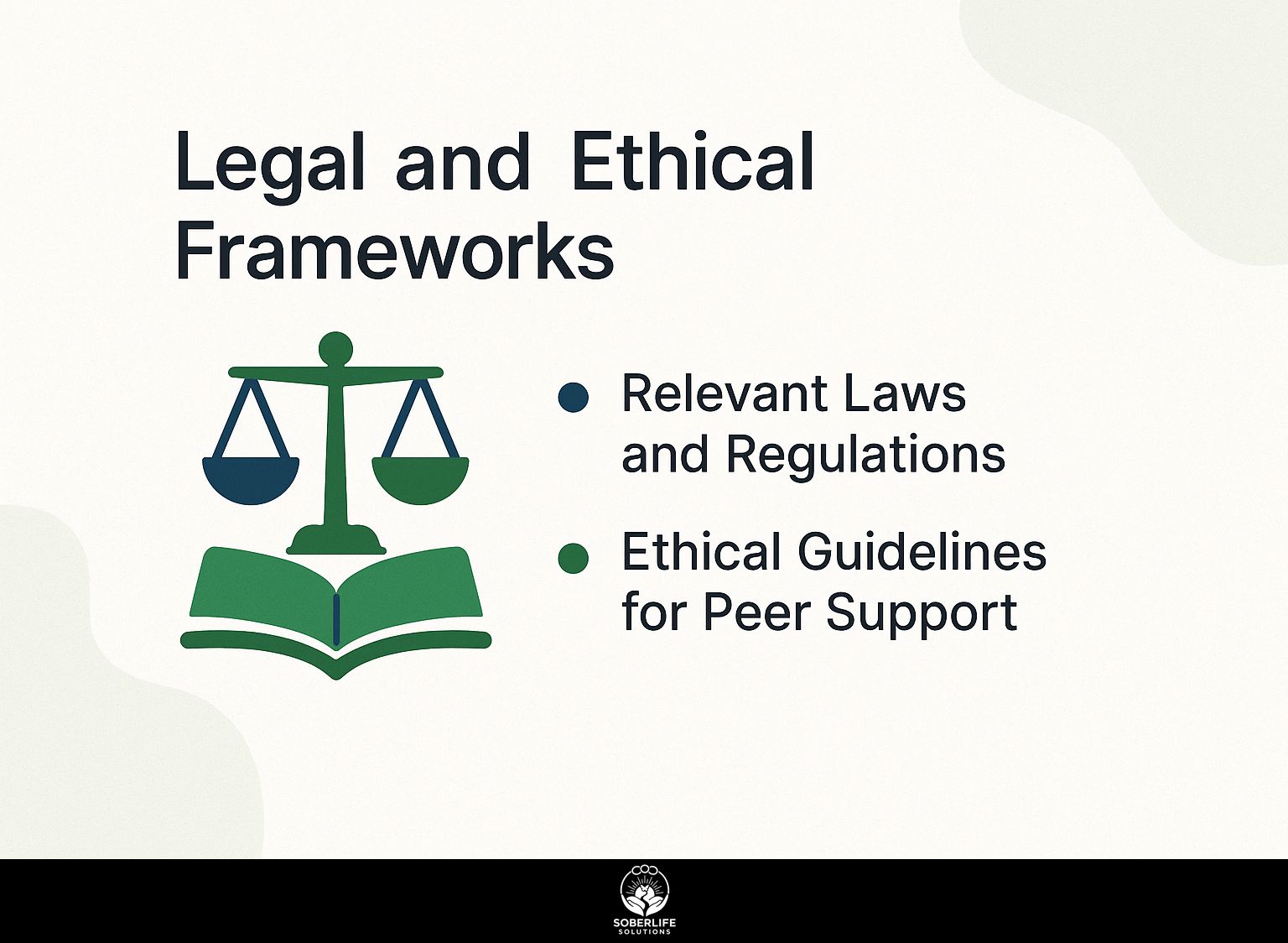
Knowing the rules and ethical guidelines about peer support is important for keeping participants safe and following privacy rules. For a detailed understanding of these privacy rules, the U.S. Department of Health and Human Services provides a comprehensive summary of the HIPAA Privacy Rule, which is essential reading for anyone involved in mental health support. Additionally, it’s crucial to understand the importance and guidelines of confidentiality (our detailed guide explores these concepts), enhancing your approach to ethical peer support.
Relevant Laws and Regulations
Key regulations such as HIPAA serve to protect the confidentiality of health information, impacting how peer support specialists interact with service users.
In mental health settings, HIPAA mandates that any identifiable health information must remain confidential unless explicit consent is given by the service user. State laws may impose stricter regulations.
For example, California’s Confidentiality of Medical Information Act (CMIA) provides more protection than HIPAA. It imposes fines up to $250,000 for unauthorized disclosures.
Peer support specialists should establish clear protocols for information sharing and documentation, ensuring compliance by regularly training on privacy laws and using secure communication methods to uphold confidentiality.
Ethical Guidelines for Peer Support
Ethical rules explain what peer support specialists must do to get permission from clients and keep their information private.
These guidelines, established by organizations such as the International Association of Peer Supporters, emphasize the importance of training to address ethical issues. For example, peer support specialists should be trained to handle situations where there are conflicts of interest or dual relationships, creating a safe space for clients.
Improving knowledge of confidentiality practices is very important; experts might use role-playing exercises to practice dealing with sensitive information.
According to a comprehensive report by SAMHSA, this method focuses on applying ethical standards and improving client service, which builds trust and respect in all interactions.
Common Challenges in Maintaining Confidentiality
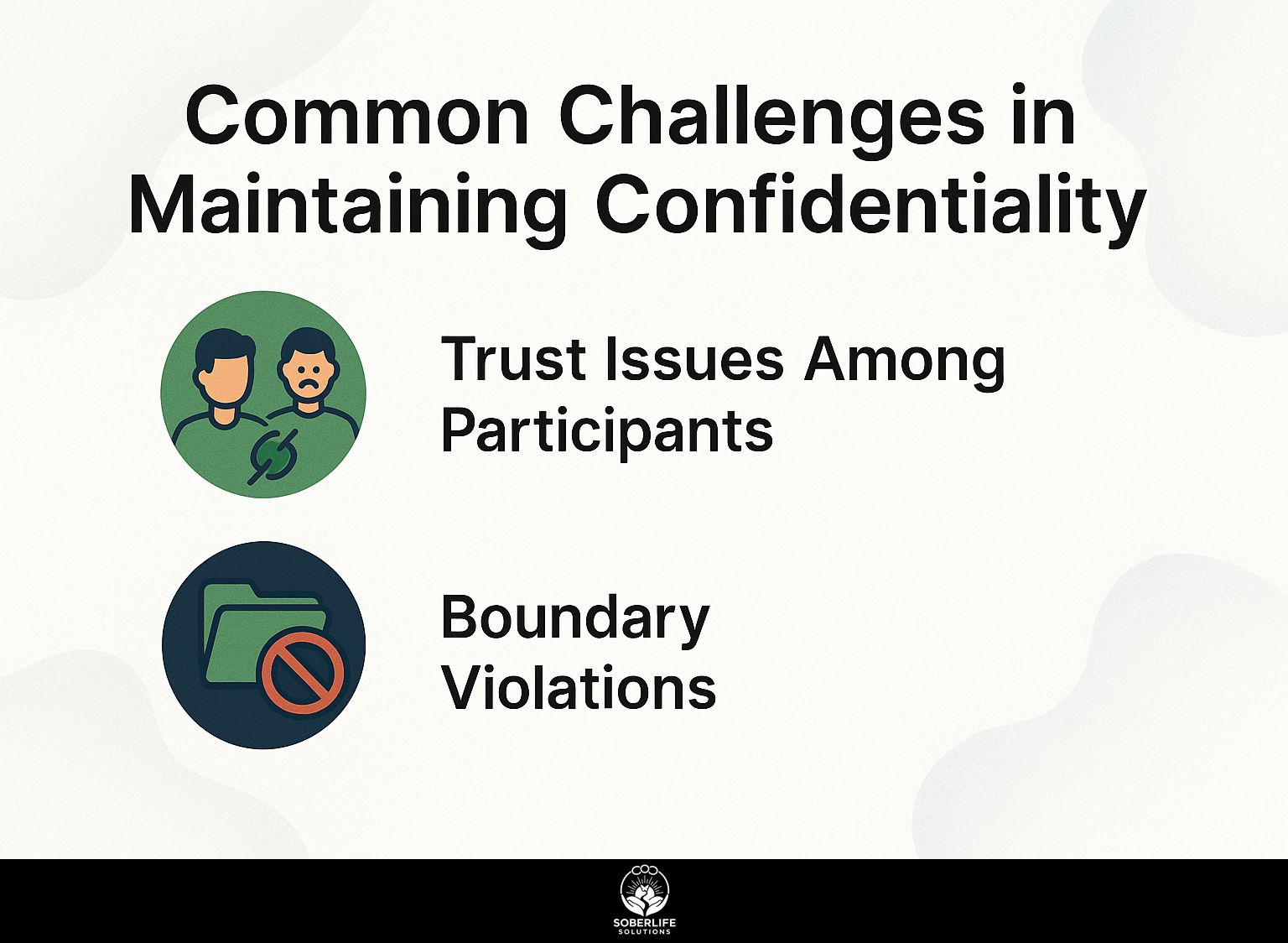
Although important, maintaining confidentiality in peer support settings can be challenging, potentially affecting trust and how well these efforts work. Related insight: Importance, Guidelines, and Confidentiality can provide further understanding of how to address these challenges effectively.
Trust Issues Among Participants
Problems with trust can come from previous bad experiences, so it’s important to set up strong confidentiality rules.
To build trust in peer support settings, initiate a transparent discussion about confidentiality and its importance.
Create ground rules, such as respecting personal stories and maintaining anonymity.
Consider creating a shared document to list these practices clearly for everyone to agree.
Facilitate open communication channels where participants can express concerns without fear of judgment.
Regular check-ins can also help reinforce trust, as they encourage a supportive environment and provide opportunities for addressing any emerging issues directly.
Boundary Violations
Boundary violations represent a significant risk to confidentiality in peer support environments, often leading to breaches that erode participant trust.
Examples of boundary violations include:
- Sharing personal experiences that disclose confidential information about other participants
- Engaging in dual relationships, like becoming friends outside the support group.
To mitigate these risks, organizations should implement role-playing scenarios in training sessions. For instance, participants could practice responding to questions that might breach confidentiality, reinforcing the importance of maintaining professional boundaries.
Regular workshops can also promote awareness and provide ongoing support for maintaining appropriate relationships within the group.
Best Practices for Ensuring Confidentiality
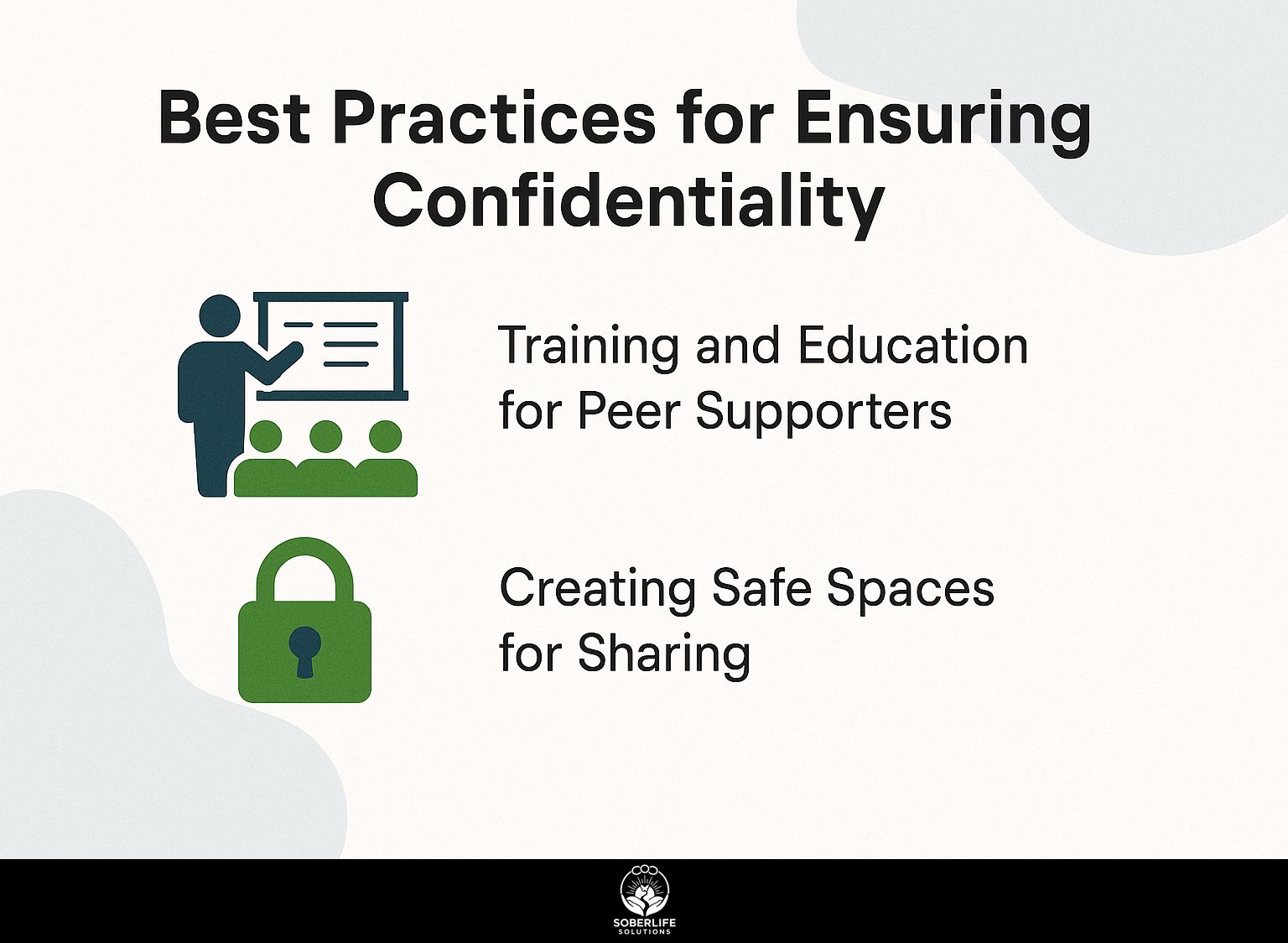
Following best practices is key to keeping information private and creating a secure space for people in peer support groups. For a deeper understanding of these practices, consider exploring global and inclusive best practices in peer support which can further enhance your approach.
Training and Education for Peer Supporters
Thorough training programs for peer support specialists are necessary to explain the importance of keeping information private and behaving ethically.
Programs like those offered by the World Health Organization (WHO) are particularly notable. WHO’s training includes modules aimed at reinforcing confidentiality principles critical to peer support roles.
Participants learn about best practices in safeguarding sensitive information, emphasizing the importance of informed consent and discretion in discussions.
Online platforms like Coursera and edX offer courses that focus on ethical practices, helping peer supporters to improve their skills. Participating in these training programs helps peer support specialists understand confidentiality and build trust with people in their communities.
Creating Safe Spaces for Sharing
Creating safe spaces for sharing is critical in peer support, where participants feel secure in expressing their thoughts and experiences without fear of exposure.
To create supportive environments, begin by setting clear rules that require respectful communication and privacy.
For example, peer support groups might agree that personal stories shared within the group remain confidential. Using confidentiality agreements can reinforce this commitment to privacy. Organizations such as the National Alliance on Mental Illness (NAMI) show this method by offering organized support and focusing on a respectful and considerate environment.
Promoting active listening and acknowledging participants’ emotions can build trust and openness, leading to a genuinely supportive environment.
Impact of Technology on Confidentiality
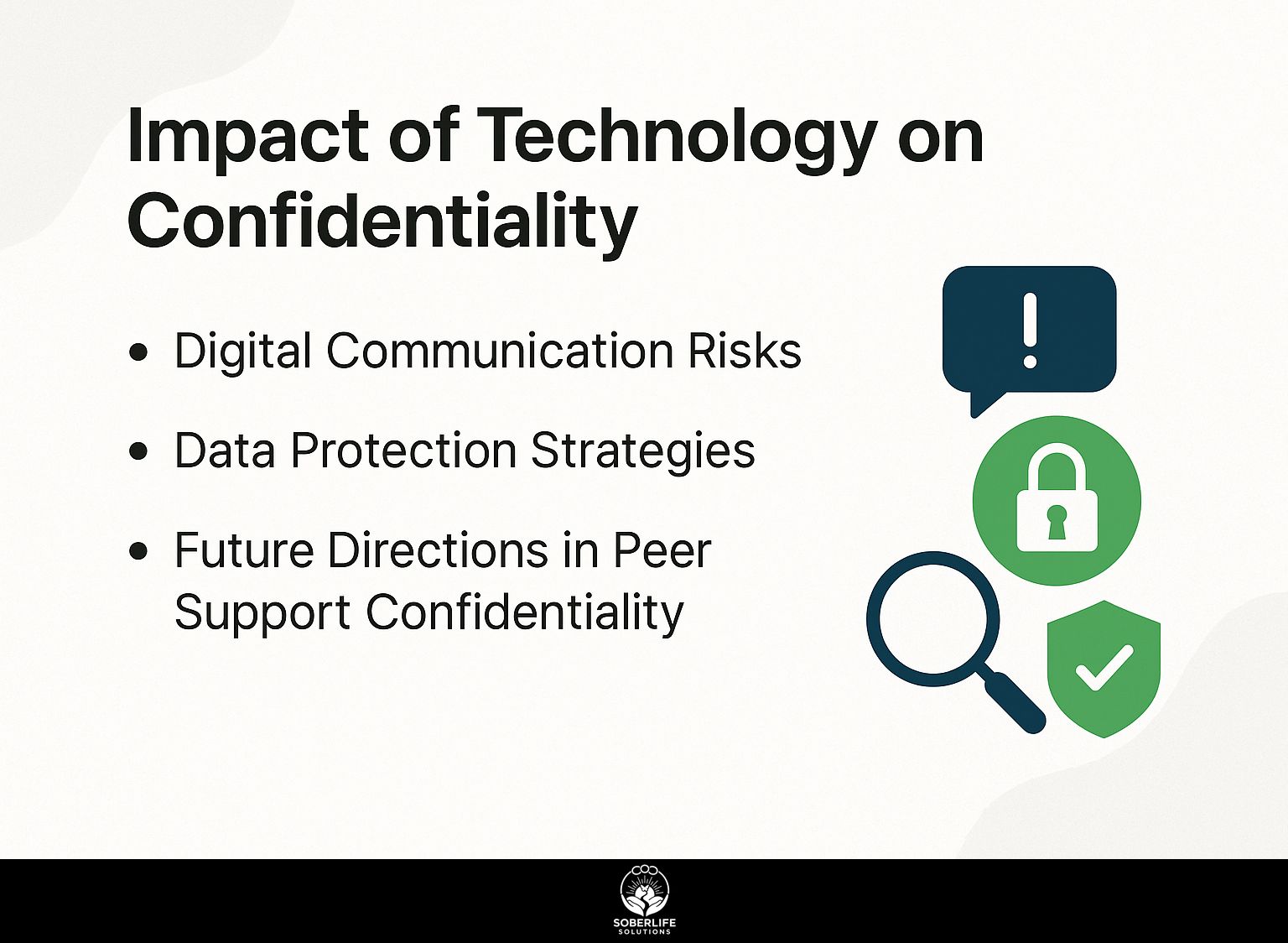
The increase in digital communication tools has changed peer support, but it brings up important concerns about confidentiality and data security. To understand how these tools are being utilized, delve into the evolving landscape of virtual peer support platforms and apps that are becoming increasingly popular.
Digital Communication Risks
Digital communication platforms can expose participants to privacy concerns and security challenges, particularly if confidentiality protocols are not strictly followed.
To mitigate these risks, using secure communication tools is essential. For instance, Signal offers end-to-end encryption, ensuring that only the intended recipient can read messages. Zoom includes this feature, making it reliable for video calls.
Encourage participants to familiarize themselves with the privacy settings of these platforms and to use unique meeting IDs and passwords. Establish guidelines for sharing sensitive information and remind participants to refrain from discussing confidential matters in public forums or unsecured channels.
Data Protection Strategies
Strong data protection practices are necessary to keep peer support participants’ information confidential online.
To improve data security, it is important to anonymize personal information. This can be achieved by utilizing tools such as Google Forms, which allows for anonymous survey responses.
Using apps like Signal or WhatsApp keeps your chats private through encryption. It’s important for peer support programs to follow privacy rules like the General Data Protection Regulation (GDPR). This requires getting clear permission before gathering any personal information.
By prioritizing these strategies, organizations can better maintain the trust and safety of their participants.
Upcoming Paths in Peer Support Confidentiality
Upcoming developments in peer support confidentiality will probably use better technology and updated ethical guidelines to address new issues.
To improve privacy, companies might use electronic consent systems, allowing participants to easily manage their data permissions.
Tools like ConsentManager simplify the process of collecting and storing consent, ensuring it is done quickly and safely. Using advanced encryption methods, like end-to-end encryption for messages, is essential for safeguarding sensitive information.
Ongoing discussions around data justice emphasize the need for equitable data handling practices. Ensuring the safety of participants in these changing systems is important to maintain trust and promote open discussions in peer support groups.
Frequently Asked Questions
What is confidentiality in peer support?
Confidentiality in peer support means keeping shared information private and not sharing it without the other person’s consent. This builds trust and creates a safe space for individuals to share their personal struggles and experiences.
What are some challenges in maintaining confidentiality in peer support?
Some problems in keeping information private in peer support include pressure from others to share details, not knowing limits on sharing, and breaches of privacy by peers or professionals.
What steps can peer supporters take to keep conversations private with peers?
Peer supporters can keep information private by clearly defining limits, getting permission from peers before sharing details, and sticking to the rules and procedures of their organizations.
What are some consequences of breaching confidentiality in peer support?
Breaching confidentiality in peer support can damage trust and relationships between peers, create feelings of betrayal or guilt, and lead to legal consequences for the peer supporter.
Why is confidentiality important in peer support?
Confidentiality is important in peer support as it allows individuals to share their personal struggles and experiences without fear of judgement or repercussions. It also promotes a sense of safety and confidentiality in the relationship between peers.
How can peer supporters handle situations where confidentiality may be compromised?
Peer supporters should talk honestly with the peer about the situation, get their permission before sharing any details, and ask their organization or supervisor for help in dealing with the situation correctly.

